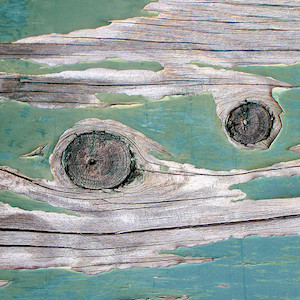Tart

As you dip your hands into the cool bowl of flour, the alligator drags its belly up on to the Palmetto grass. Your daughter is a few yards away from it, burying marbles in the damp creek soil, her small body brown with sun. You are making an apple tart, even though Andrew is adamant in his dislike of apples, hating the sound their flesh makes against his teeth. Though you are twenty-nine, you have never outgrown the idea that your tastes are objective truths; Andrew would come to crave apples, because apples are the perfect fruit, your daughter would come to weep unashamedly during the final scene of The Last Picture Show (how Cloris Leachman presses his hand to her cheek, her chin, her neck, as if he has already died), because it is the greatest film ever made.
You break the butter apart with the tips of your fingers, moving quickly before the Florida heat makes it too soft. The sliding door to the deck is open, so you can hear her, and the air inside is thick as milk. You have never bothered with an apron, and are not a careful cook. Your t-shirts are speckled as an egg with grease stains, your jeans white with clouds of flour. After, you will care even less: you will use the cuffs of your sweatshirts to remove pots of boiling water from the stove, coffee stains large as Russia will be fixed on the map of your summer dresses.
You shape the pale dough into an uneven brick and place it in the freezer, a glossy, beige surface covered in photographs, crayon drawings of six-legged cats and houses with two windows, magnets from holidays in New Orleans, the Keys. Your hands are flaky with butter and flour, an extra layer of skin.
You sit down at the table, your chair’s right back leg lifting off the tile ever so slightly. The hair at the base of your neck is slick with sweat, and you close your eyes, running your thumbs along the ridge of your brow. Next to the sugar and salt is the book you plan on mailing to your boyfriend of eight or so years ago, the man you left for Andrew, now a pharmacist in Idaho.
The alligator is still as glass, its teeth dull and uneven, stalactites in a cave. The book is about the Russian Revolution. You both loved history, often arguing about which great men you would name your future dog after: Hannibal, Ulysses S. Grant, Charles de Gaulle. You send him occasional letters, just as you send occasional bluegrass albums to the man who took your virginity. Andrew doesn’t know about this, and you don’t believe it’s a problem. It’s just a book, you think, always ready for the argument, and then exhale a short, audible breath, like a train emitting a puff of steam.
Your daughter’s name is Sarah. It is a name you regret. You have never told anyone this, and will never tell anyone this, though you often wonder if other parents have felt the same, finding that as the child grows taller and plumper the name becomes like an ill-fitting dress they can’t take off. She is almost three and a half, and finally an age where you are not consumed with her, no longer feeling there’s a string wrapped around your throat that she could tug, whether you were in the shower, your bed, the dressing room of a department store.
After putting away the sticky heel of butter and clipping the bag of flour shut, you wipe down the table, scrubbing the dried patches of dough from the wood. You wonder if you have enough tomato sauce to make pasta for dinner, whether Andrew will remember to stop and pick up laundry detergent, so you can clean Sarah’s sheets. You wonder if your sister will help you plant chrysanthemum bulbs this weekend, if your mother, across town, her ankles swollen in the late afternoon heat, is taking her diabetes medication.
You know it is not simply a book. You like to imagine every man who has had you will forever want you, even if you do not want them. These books, these albums and letters are flares shot into a nebulous, purple sky, saying here I am, still, off in the distance, burning just as brightly. You fear being forgotten.
You never feared alligators. You feared hornets and rabid dogs, the undertow, plane crashes and losing your sight, Andrew leaving and never returning, the floor of the ocean, its complete, saturated darkness, the pressure that would cause your lungs to burst, Sarah being born with autism, Sarah drowning in a swimming pool, Sarah suffocating in her crib.
You take the first apple from the bowl, its glossy skin as red as a heart. A drop of sweat runs between your shoulder blades, and you wonder why you decided to make a tart, why you didn’t just ask Andrew to buy ice cream. Your fingers become slick with juice, though you are careful not to cut yourself, always conscious of how easy it is to slip and draw blood, the millimeters, the seconds, that divide a simple moment from catastrophe. From the corner of your eye you see a flash of movement, what you imagine as a lizard scaling the screen door, the slanting of a shaft of sunlight, and continue to slice into the crisp fruit.










